Presley Knott (photo: Cebolla Mendez, Quiver Surf photography)
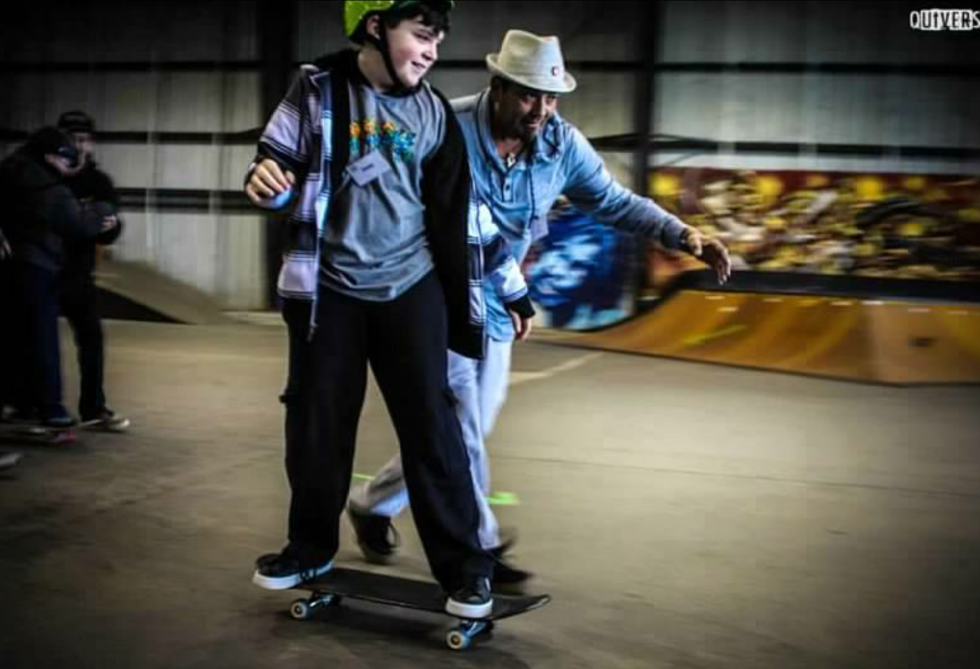
Presley tried to play soccer but kept touching the ball with his hands. That’s not allowed. His coach yelled at him. His teammates laughed at him. Presley hates soccer now and doesn’t play anymore. After that, he tried T-ball. But it was no different. More loud coaches, more laughing kids. Sports were always tough for Presley. His peers said he didn’t belong on the field with them because he’s weird. But Presley doesn’t think he’s weird. He’s just a kid, 12 years old, 5-foot-3. He weighs 120 pounds and has freckles and autism.
“My son’s biggest challenge is that he’s so high functioning, a lot of kids don’t know he has a disability,” says Presley’s mom, Randi Knott, director of government affairs for the city of Sacramento. “I don’t want him to be bullied or resented by his peers.”
Without sports, Presley ends up reading alone or playing video games. His mom didn’t want him to be unhealthy and overweight from sitting all the time. She didn’t know what to do until last fall when she received a flyer from Alta California Regional Center, which helps kids with developmental disabilities. That’s how she learned about SkateMD.
SkateMD connects youth with special needs with volunteers to learn how to skateboard. The Sacramento-based nonprofit was created by Melanie Tillotson (the “M”) and Andrea “Drea” Bibelheimer (the “D”), who saw a need in the community for a cool program in a safe space that would spread kindness to children facing developmental, physical, emotional and family challenges.
“We’re talking about kids who aren’t even verbal or communicating with their own parents,” Tillotson says. “They don’t let people touch them, barely get by in school, have a hard time making friends. They’re kind of autistic but not autistic enough for people to realize, so people think they’re weird.”
Tillotson and Bibelheimer are no strangers to the local skate parks. They both married skater husbands and have skater kids. Seeing their loved ones on boards sparked the idea. With Tillotson’s corporate background at Wells Fargo and Bibelheimer’s nonprofit experience with the Community College Foundation, the duo teamed up as “partners in kind” to create SkateMD clinics.
These free, 1-day events are geared for kids with special needs on a first come, first serve basis. The slots fill up quickly, and the kids come out, some quieter than others. Otto, for instance, didn’t want to skate at first. Due to a vaccine injury, the 6-year-old boy is paralyzed from the waist down and uses a wheelchair. To him, the skate park felt too busy.
“He was a little intimidated by the loud noises, and he was crying outside,” says Otto’s dad, Josh Coleman. “But after he saw videos of [paralyzed skateboarder Jesse Swalley], he skated in the parking lot for a while. Pretty soon, he was in here ripping it up. Then we couldn’t get him to stop.”
Swalley, an inspiring skater in his 50s, came up to Sacramento for the May clinic to meet Otto personally. Amid the rattle of wheels and clamor of voices, the pair skated together, sitting on their boards and pushing off with their hands in the half-pipe.
“He likes going up the ramp as high as he can,” says Otto’s dad while snapping action shots from above.
This is what SkateMD is all about: giving children a chance to do what they might have never done. Some of these kids don’t have access to equipment. Others don’t like speaking to people. But at the clinics, parents get to see them — clad in knee pads, elbow pads and helmets — rolling up ramps and giving high-fives with bright smiles that say, “I did it!”
“We have so many good stories, we cry every day,” Tillotson says. “It’s not just skateboarding. We’re actually changing people’s lives, we’re changing family’s lives.”
Since launching last year, SkateMD has gotten a lot of support from sponsors and volunteers. The city wants to provide the organization with resources, and now Bibelheimer and Tillotson are trying to figure out if this is something they could pursue full time and expand to other cities. It’s all happening so fast.
Every time they announce a new clinic, the slots fill up in less than three days. The hard part is having to turn some kids away from clinics after the first 25 sign up. They recognize the demand. But rather than move too fast with this program, Tillotson and Bibelheimer prefer the slow and steady approach. This allows for more personal touches, where they can be hands-on with the kids and build relationships with the families.
“We’re trying to meet the need, but not getting in over our heads,” Tillotson says. “And we don’t want it to be a circus for the kids because they have emotional and physical needs.”
SkateMD supports both of these needs in a unique way. When you ride a skateboard, you must rely on different motor skills for coordination and balance. The program also instills social confidence, inviting the kids to try something new and giving them support all the way.
A week before every clinic, Erik Nielsen, a licensed physical therapist and SkateMD board member, matches each kid with a volunteer Skate Buddy. He calls every parent or guardian to learn about the child’s specific needs and hobbies and puts the report in a personalized file.
The day of the clinic, before the kids get their equipment strapped on, Nielsen holds a 10-minute training session with the volunteers, sharing basic tips like eye contact, verbal encouragement and adaptability.
“A lot of kids who come to the clinics have a hard time with sensory input,” Nielsen says. “If there are loud noises or too many people, they get anxious. But if you can get them through the front door, they get sucked in. They’re so excited, so distracted by the skateboarding, that goes out the window.”
Presley was excited about skateboarding before he’s even touched a board. He saw other kids skating to school and he wanted to do that, too, but his mom thought it would be too dangerous because of his balance issues.
When he asked her if he could ride a skateboard, she said, “Why don’t we see if we can ride a bike without training wheels first?” She later changed her mind and took him to the November clinic.
“The next day after that first clinic, Presley said, ‘Mom, my tummy hurts,’” Knott recalls with a chuckle, “and I said, ‘Dude, those are your core muscles. You’ve never used those before. You don’t use those on Mario Kart.’”
Presley loves skateboarding now, and his mom does too because she sees him beaming as he pushes forward with his Vans sneakers, holding on to his Skate Buddy as he rolls up, down and all around the park.
“For additional photos, visit photographer Kelly Barr’s post”



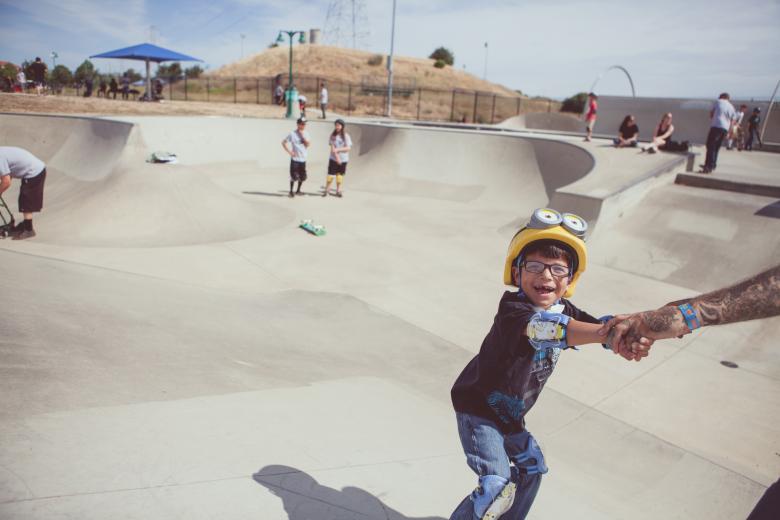

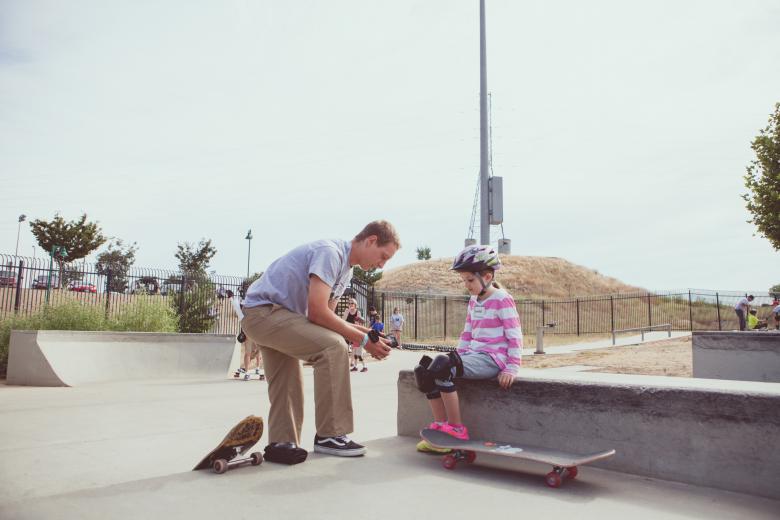

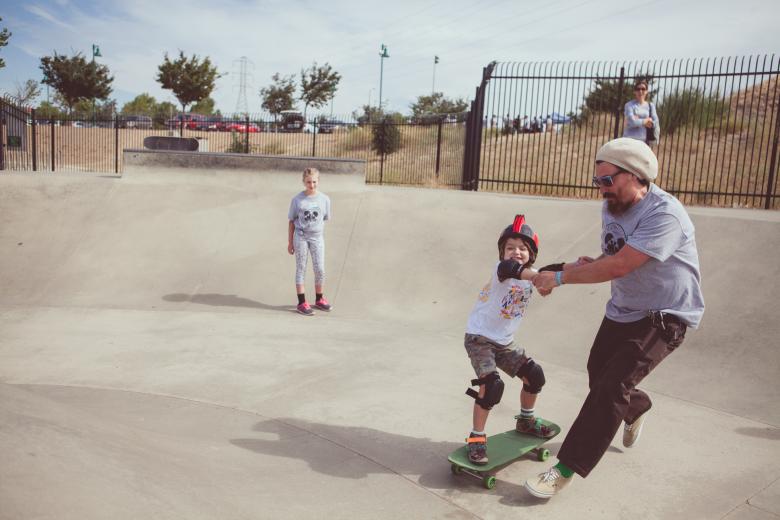

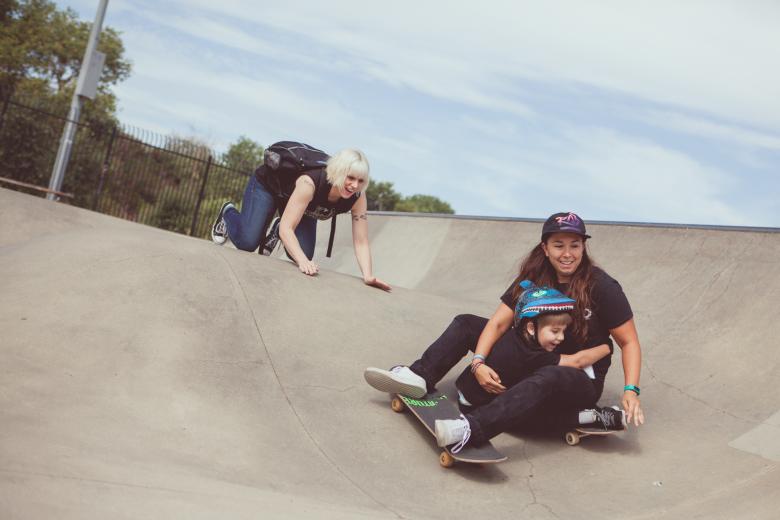
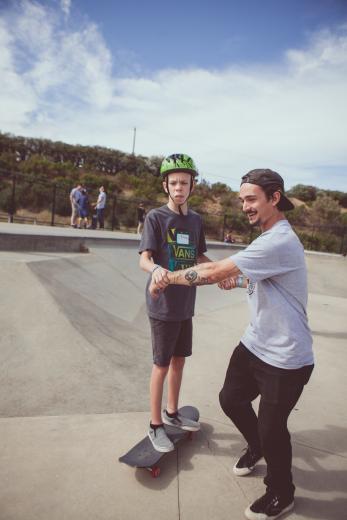

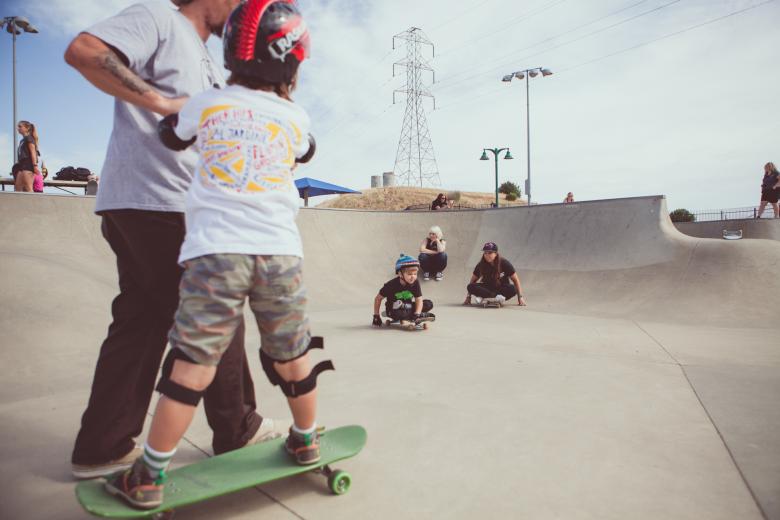
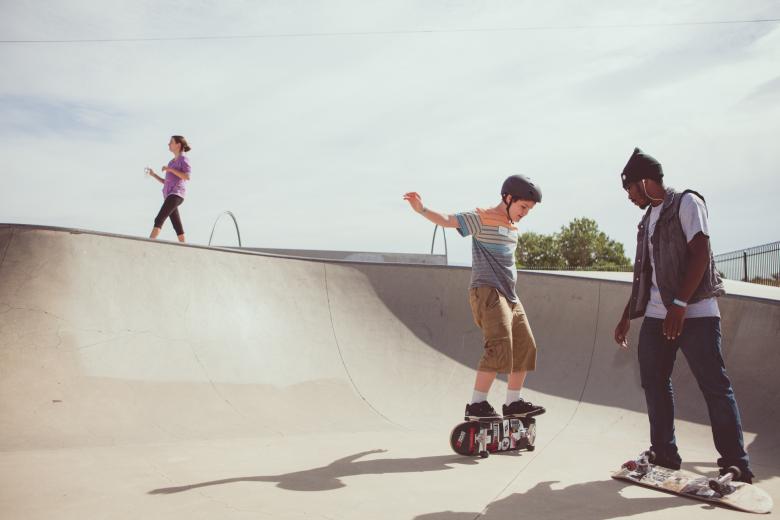
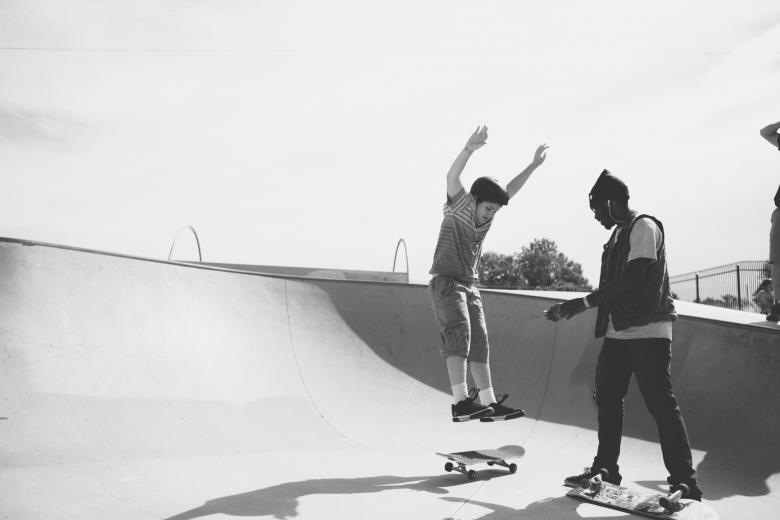


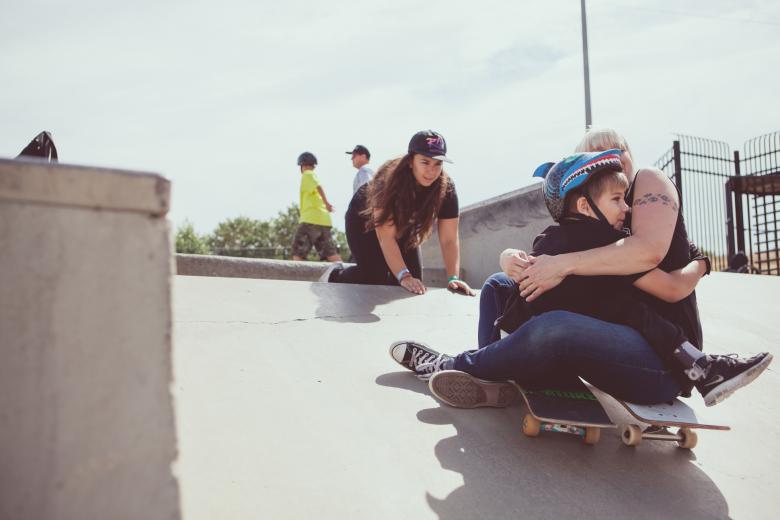
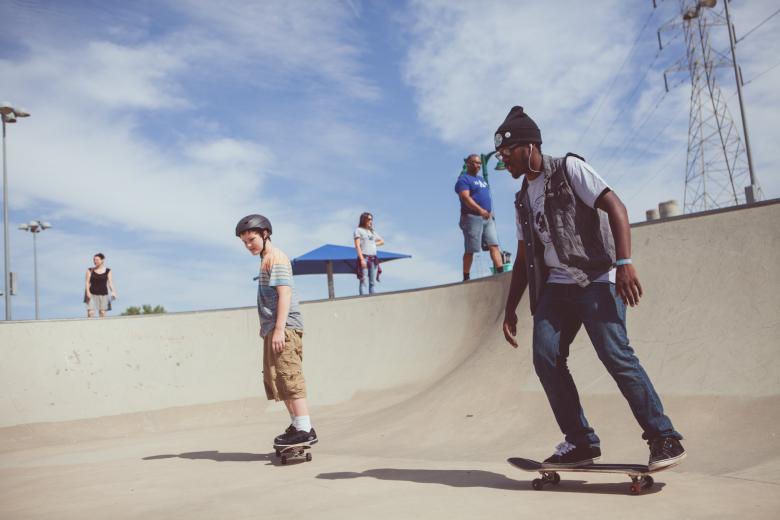

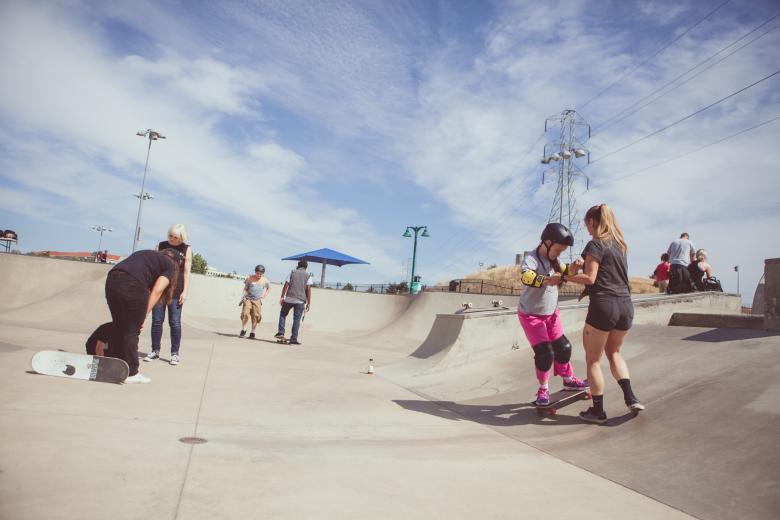
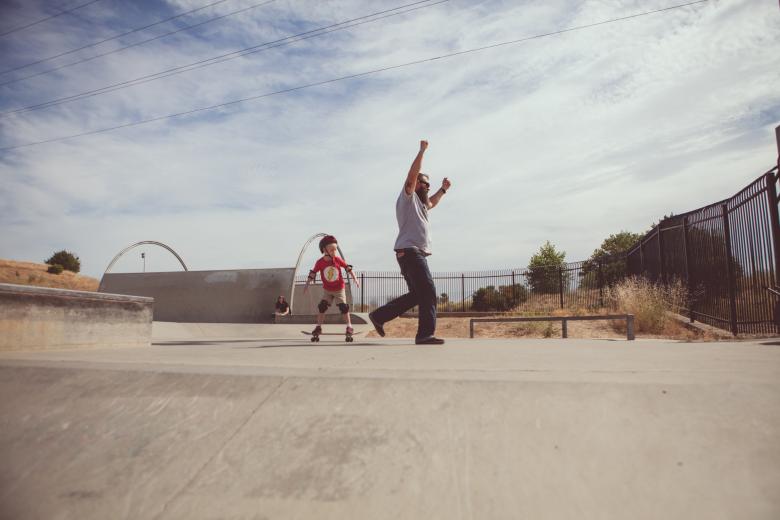


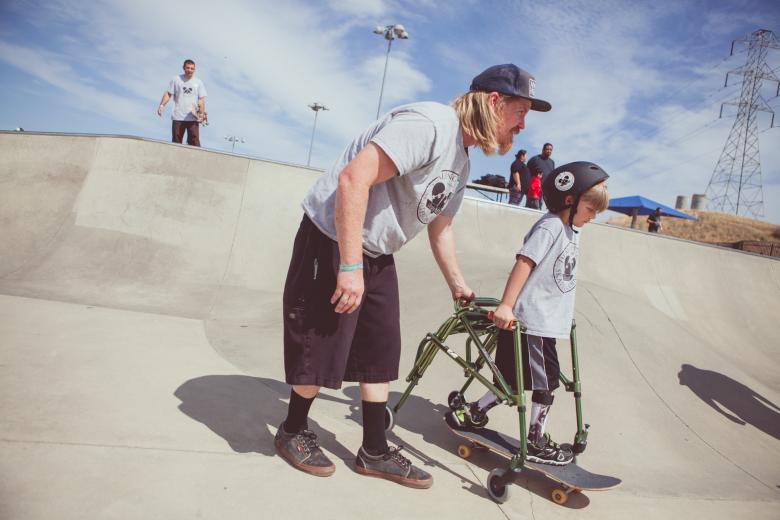
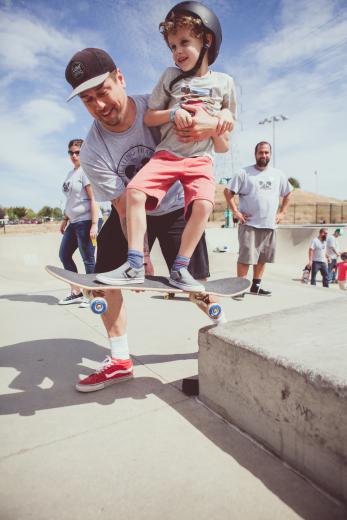
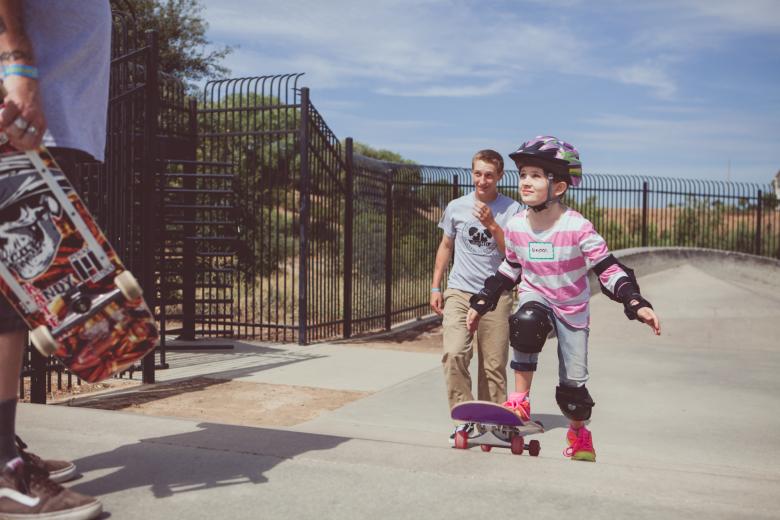


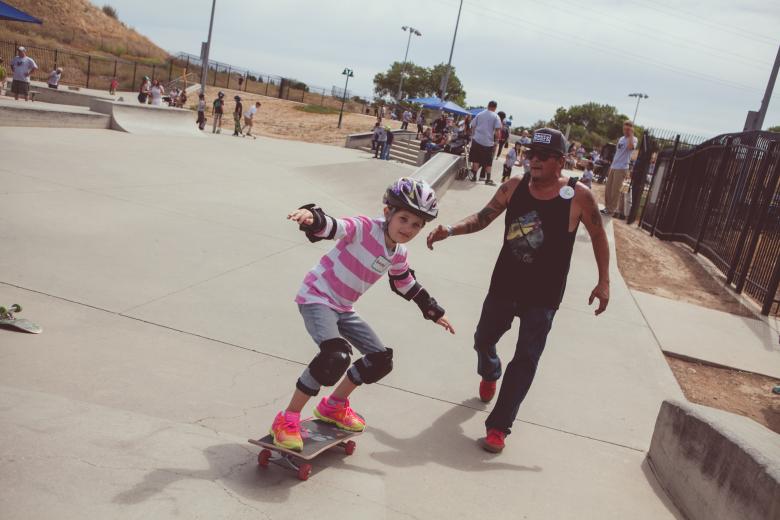

Comments
Presley is my son and I'm really proud of him and amazed at the work Mel and Drea have done for him and all of the kids. Given that we shared his story, it would have been nice to see a photo of him. The photos are from the one clinic he was unable to attend.
This is a reminder that while we cannot all do everything, we can all do something! Our little can and does make a BIG difference!
Skate MD is the most amazing wonderful clinic and deserves the recognition and funding. My grandson has been going since the beginning and as just thrived. Whit autism he doesn't "take" to new people for a while but not at the clinics. They have done such a great job and I recommend that if you can just go see for yourself and prepare to be amazed